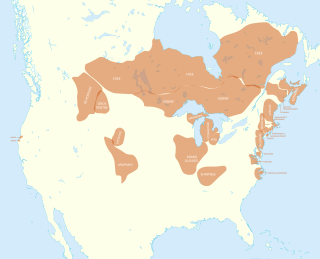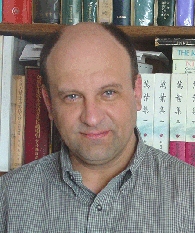Related Research Articles

Altaic is a hypothetical language family which would include the Turkic, Mongolian, and Tungusic language families; and possibly also the Japonic, Koreanic, and Ainu languages. Speakers of those languages are currently scattered over most of Asia north of 35 °N and in some eastern parts of Europe, extending in longitude from Turkey to Japan. The group is named after the Altai mountain range in the center of Asia. Most comparative linguists today reject the hypothesis, but it still has supporters.
A language isolate, in the absolute sense, is a natural language with no demonstrable genealogical relationship with other languages, one that has not been demonstrated to descend from an ancestor common with any other language. Language isolates are in effect language families consisting of a single language. Commonly cited examples include Ainu, Basque, Sumerian, Elamite, and Vedda, though in each case a minority of linguists claim to have demonstrated a relationship with other languages.
Samuel Elmo Martin was a professor of Far Eastern Languages at Yale University and the author of many works on the Korean and Japanese languages.
Applied linguistics is an interdisciplinary field which identifies, investigates, and offers solutions to language-related real-life problems. Some of the academic fields related to applied linguistics are education, psychology, communication research, anthropology, and sociology.

The Japonic or Japanese–Ryukyuan language family includes the Japanese language, spoken in the main islands of Japan, and the Ryukyuan languages, spoken in the Ryukyu Islands. The family is universally accepted by linguists and significant progress has been made in reconstructing the proto-language. The reconstruction implies a split between all dialects of Japanese and all Ryukyuan varieties, probably before the 7th century. The Hachijō language spoken on the Izu Islands is also included, but its position within the family is unclear. There is also some fragmentary evidence suggesting that Japonic languages may once have been spoken in central and southern parts of the Korean peninsula.

The Algic languages are an indigenous language family of North America. Most Algic languages belong to the Algonquian subfamily, dispersed over a broad area from the Rocky Mountains to Atlantic Canada. The other Algic languages are the Yurok and Wiyot of northwestern California, which, despite their geographic proximity, are not closely related. All these languages descend from Proto-Algic, a second-order proto-language estimated to have been spoken about 7,000 years ago and reconstructed using the reconstructed Proto-Algonquian language and the Wiyot and Yurok languages.
Braj Bihari Kachru was an Indian linguist. He was Jubilee Professor of Linguistics at the University of Illinois at Urbana-Champaign. He coined the term "World English" and also published studies on the Kashmiri language.

Mono is a Native American language of the Numic group of Uto-Aztecan languages, the ancestral language of the Mono people. Mono consists of two dialects, Eastern and Western. The name "Monachi" is commonly used in reference to Western Mono and "Owens Valley Paiute" in reference to Eastern Mono. In 1925, Alfred Kroeber estimated that Mono had 3,000 to 4,000 speakers. As of 2010 only about 40 elderly people speak Mono as their first language. It is classified as critically endangered by UNESCO. It is spoken in the southern Sierra Nevada, the Mono Basin, and the Owens Valley of central-eastern California. Mono is most closely related to Northern Paiute; these two are classified as the Western group of the Numic branch of the Uto-Aztecan language family.
András Kornai, son of economist János Kornai, is a mathematical linguist. He earned PhD in mathematics in 1983 from Eötvös Loránd University in Budapest, where his advisor was Miklós Ajtai. He earned his PhD in linguistics in 1991 from Stanford University, where his advisor was Paul Kiparsky.

English is a West Germanic language that was first spoken in early medieval England and eventually became a global lingua franca. It is named after the Angles, one of the Germanic tribes that migrated to the area of Great Britain that later took their name, as England. Both names derive from Anglia, a peninsula in the Baltic Sea. The language is closely related to Frisian and Low Saxon, and its vocabulary has been significantly influenced by other Germanic languages, particularly Norse, and to a greater extent by Latin and French.
This article is a technical description of the phonetics and phonology of Korean. Unless otherwise noted, statements in this article refer to South Korean standard language based on the Seoul dialect.

Alexander Vladimirovich Vovin is a Russian-American linguist and philologist, currently director of studies at the School for Advanced Studies in the Social Sciences in Paris, France.
The University of Hawaiʻi Press is a university press that is part of the University of Hawaiʻi.
Bodish, named for the Tibetan ethnonym Bod, is a proposed grouping consisting of the Tibetic languages and associated Sino-Tibetan languages spoken in Tibet, North India, Nepal, Bhutan, and North Pakistan. It has not been demonstrated that all these languages form a clade, characterized by shared innovations, within Sino-Tibetan.
Reinhard Rudolf Karl Hartmann (1938–) is a lexicographer and applied linguist. Until the 1970s, lexicographers worked in relative isolation, and Hartmann is credited with making a major contribution to lexicography and fostering interdisciplinary consultation between reference specialists.
Linguistics is the scientific study of language. It involves analysing language form, language meaning, and language in context. Linguists traditionally analyse human language by observing an interplay between sound and meaning. Linguistics also deals with the social, cultural, historical and political factors that influence language, through which linguistic and language-based context is often determined. Research on language through the sub-branches of historical and evolutionary linguistics also focuses on how languages change and grow, particularly over an extended period of time.

Croatian is the standardized variety of the Serbo-Croatian language used by Croats, principally in Croatia, Bosnia and Herzegovina, the Serbian province of Vojvodina, and other neighboring countries. It is the official and literary standard of Croatia and one of the official languages of the European Union. Croatian is also one of the official languages of Bosnia and Herzegovina and a recognized minority language in Serbia and neighboring countries.
Michael John Kenstowicz is an American linguist specializing in phonetics and phonology and professor of linguistics at MIT Department of Linguistics and Philosophy. He is known for writing "Phonology in generative grammar" a coursebook taught across the world in phonology courses.
David James Silva is an American linguist and university administrator. His phonetic, phonological, and sociolinguistic research has examined aspects of the voicing of consonants in Korean and of the vowels of the Portuguese dialect spoken in the Azores.

Marjolijn Verspoor is a Dutch linguist. She is a professor of English language and English as a second language at the University of Groningen, Netherlands. She is known for her work on Complex Dynamic Systems Theory and the application of dynamical systems theory to study second language development. Her interest is also in second language writing.
References
- ↑ Ho-Min Sohn (2001). The Korean Language. Cambridge University Press. p. 10. ISBN 9780521369435.
- ↑ Young-Key Kim-Renaud (1994). Theoretical issues in Korean linguistics. Center for the Study of Language, Stanford University. p. ix. ISBN 9781881526513.
- ↑ "A Brief History of the International Circle of Korean Linguistics". International Circle of Korean Linguistics. Archived from the original on 4 February 2012. Retrieved 9 April 2012.